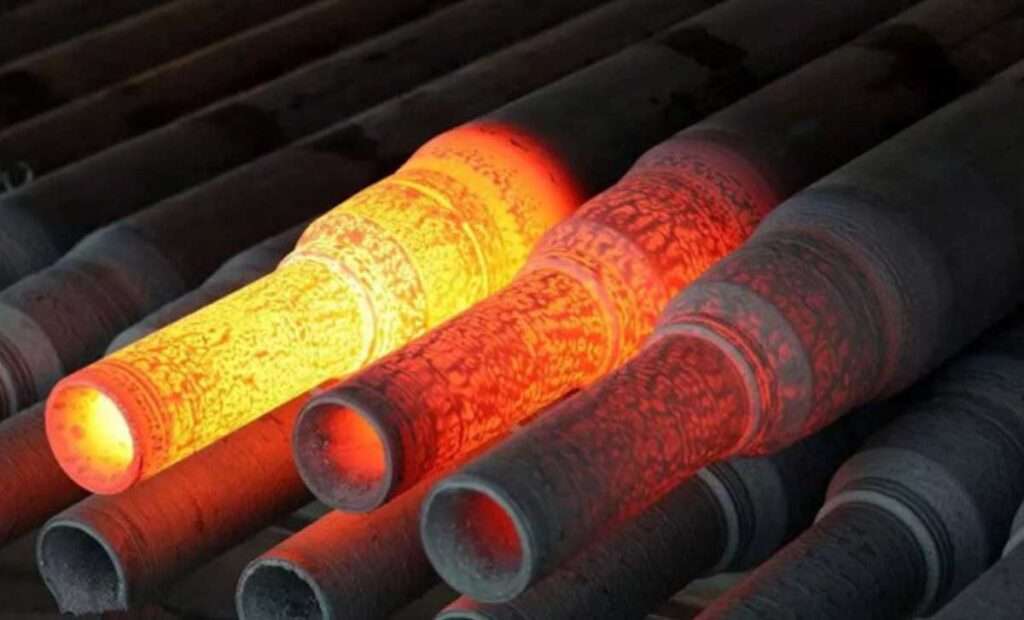Introduction
In the world of metallurgy, forged steel stands out for its exceptional properties and diverse applications. This blog will delve into the unique characteristics of forged steel, its advantages over other steel types, common applications, and frequently asked questions. Let’s explore the world of forged steel and uncover why it is a preferred choice in various industries.
Key Keywords: forged steel properties

The Properties of Forged Steel Forged steel possesses a set of unique properties that set it apart from other steel types. Let’s take a closer look at some of these key characteristics:
Superior Strength: Forged steel, renowned for its exceptional strength, stands as the material of choice for applications demanding unparalleled durability and exceptional load-bearing capacity. Whether in automotive components, aerospace structures, or industrial machinery, the inherent robustness of forged steel ensures optimal performance under the most demanding conditions. Its superior strength not only enhances structural integrity but also minimizes the risk of failure, providing a reliable solution for critical components subjected to heavy loads, dynamic forces, and harsh environments.
Enhanced Ductility: Forged steel’s ductility enables it to endure deformation without fracturing, bolstering resilience in demanding environments. Its ability to flex under stress ensures structural integrity, crucial for withstanding challenging conditions. This resilience is invaluable, particularly in industries where components face dynamic forces and extreme conditions. Forged steel’s capacity to withstand deformation without breaking ensures longevity and reliability, making it a preferred choice for critical applications where failure is not an option.
Excellent Fatigue Resistance: Forged steel’s uniform microstructure contributes to its remarkable fatigue resistance, rendering it highly suitable for components exposed to cyclic loading. This inherent property ensures durability and reliability in applications where repeated stress is a concern, making forged steel a preferred choice for critical components in various industries.
High Toughness: The toughness of forged steel ensures resistance to brittle fracture, even at low temperatures, enhancing the reliability of components in critical applications.
Improved Wear Resistance: Forged steel components exhibit exceptional wear resistance, rendering them well-suited for use in rigorous industrial environments. This inherent property ensures longevity and reliability, making forged steel a preferred choice for critical applications where durability is paramount.
Table: A Comparison of Mechanical Properties
| Steel Type | Yield Strength (MPa) | Tensile Strength (MPa) | Elongation (%) | Fatigue Strength (MPa) |
|---|---|---|---|---|
| Forged Steel | 350-1500 | 500-2000 | 15-30 | 200-600 |
| Cast Steel | 200-600 | 300-1000 | 5-15 | 100-300 |
| Wrought Steel | 200-1000 | 300-1500 | 10-25 | 150-500 |
Applications of Forged Steel

Forged steel finds extensive use across various industries due to its superior properties. Here are some common applications of forged steel:
Automotive Industry: Components like crankshafts, connecting rods, and axles benefit from the strength and durability of forged steel in engine and drivetrain systems.
Construction Sector: Beams, columns, and anchors made of forged steel offer dimensional stability and reliability in heavy civil infrastructure projects.
Oil and Gas Sector: Wellhead components, valves, and pipelines require the high strength and resistance to pressure and temperature offered by forged steel.
Aerospace Industry: Forged steel is used in landing gear, shafts, and turbine discs for its lightweight nature and fatigue resistance in aircraft structures.
Power Generation: Components like steam turbine parts and hydro-electric equipment rely on the reliability and performance of forged steel in energy production facilities.
Conclusion
Forged steel’s unique properties make it a preferred choice for critical applications across industries. Its combination of strength, ductility, fatigue resistance, and toughness sets it apart from other steel types, ensuring reliability and longevity in demanding environments. By understanding the properties and applications of forged steel, engineers and designers can leverage its benefits to create robust and efficient components for various sectors.
In conclusion, forged steel continues to play a vital role in modern engineering, offering unmatched performance and reliability in a wide range of applications. Its versatility and durability make it an indispensable material in industries where quality and resilience are paramount.
FAQs
What makes forged steel unique compared to other steel types?
Forged steel undergoes a specialized manufacturing process involving intense heat and pressure, resulting in superior strength, durability, and metallurgical integrity compared to other steel types like cast steel or machined steel.
What are the main applications of forged steel?
Forged steel finds widespread use in industries such as automotive, aerospace, oil and gas, construction, and manufacturing. It is commonly employed in critical components such as crankshafts, gears, shafts, valves, structural elements, and fasteners due to its exceptional properties.
How does forged steel perform under extreme conditions?
Due to its enhanced strength, toughness, and resistance to fatigue, forged steel excels in high-stress and high-temperature environments. It is capable of withstanding heavy loads, shock, vibration, and corrosive conditions encountered in demanding applications like aerospace, oil drilling, and heavy machinery.
Can forged steel be customized for specific applications?
Yes, forged steel can be tailored to meet specific requirements by adjusting the composition, heat treatment, and forging process parameters. This customization allows for the production of components with precise mechanical properties and dimensional tolerances, optimizing performance and reliability.
How does the cost of forged steel compare to other materials?
While the manufacturing process of forged steel may incur higher initial costs compared to casting or machining, the superior properties and extended lifespan of forged steel often result in long-term cost savings. Additionally, the performance benefits of forged steel in critical applications outweigh the initial investment for many industries.
